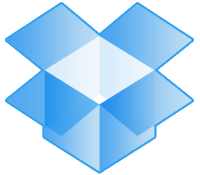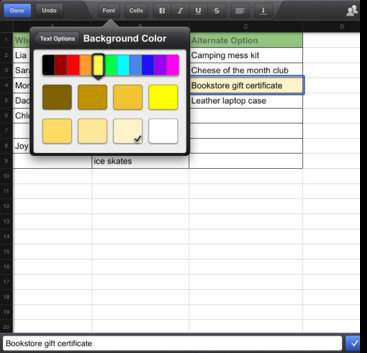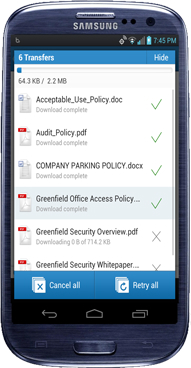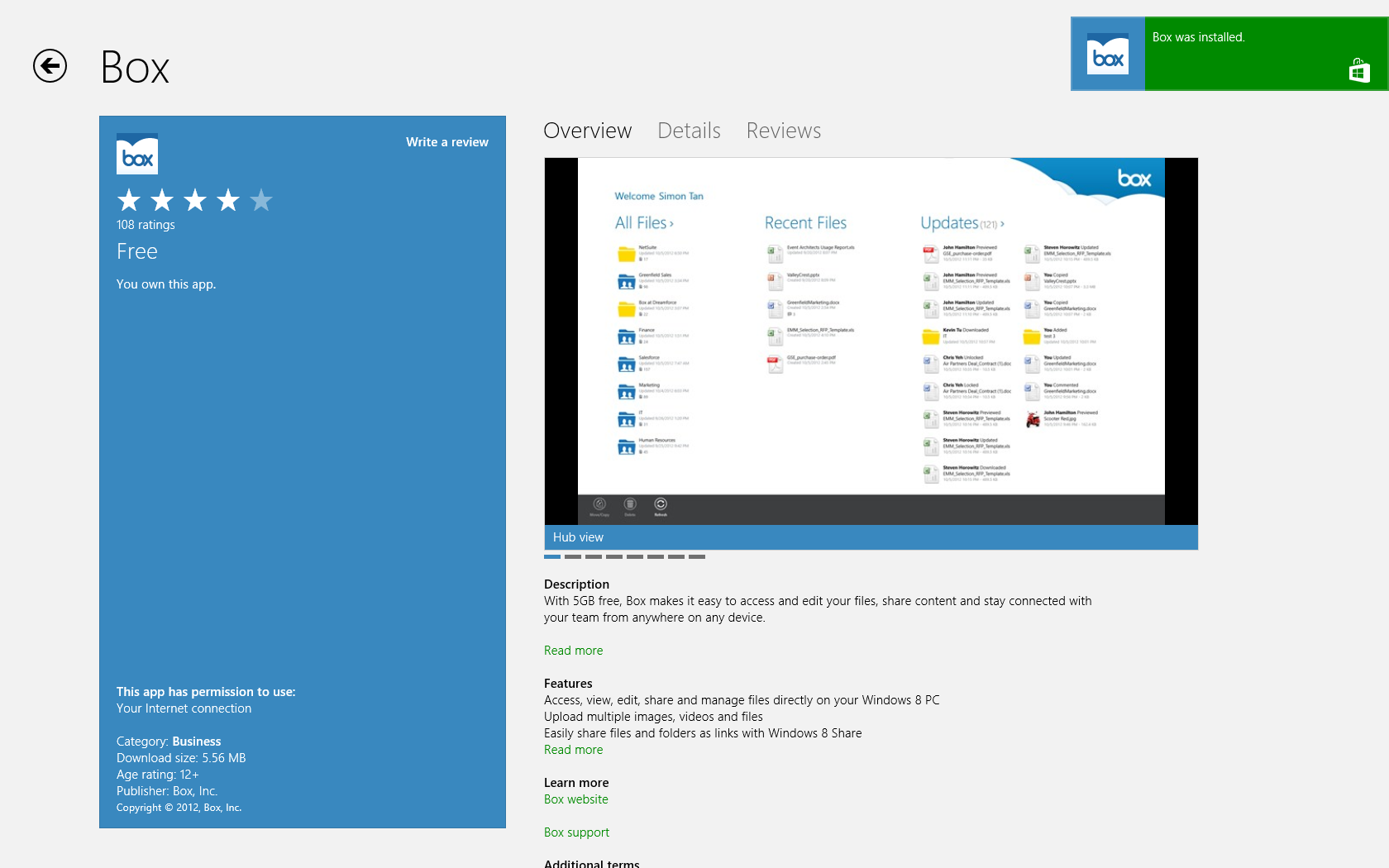
Dropbox comes to Windows Store, but don't get your hopes up
Little more than two months after Windows 8's release, popular cloud storage service Dropbox finally offers an app through the Windows Store. However, unlike Box and SkyDrive, which both deliver a fairly competent feature set, the Dropbox app for Windows 8/RT is a half-baked affair, leaving much to be desired.
Even at first glance, the Dropbox app touts a modest feature set with no advanced functionality to speak of. It allows users to browse and preview uploaded files, edit, open and save items from "other Windows 8 apps", and share and find files using the Search Charm. Users cannot edit uploaded Dropbox files using the app, only open items, making it a glorified file browser with a few extra features. Furthermore Dropbox for Windows 8 appears to be rather unstable.

Dropbox preview release available for Android, delivers opt-in for experimental builds
For early adopters that prefer to live on the bleeding edge of technology, popular cloud storage service Dropbox unveiled a new preview release. The most noteworthy feature for keen beta users is the ability to receive updates to future early and final releases.
The current preview build also introduces the option to share multiple pictures at once. The functionality is enabled by a long tap on a photo and selecting the remaining ones afterwards. In a similar manner users can also organize pictures into albums, the latter of which can also be shared, and delete multiple photos.

Microsoft makes Windows Azure even better
On Friday, Microsoft unveiled a host of new features for the company's cloud platform, Windows Azure. The latest update beefs up the software corporation's offering by expanding the availability of Windows Azure Store into more regions as well as adding support for Mobile Services in Northern Europe.
Microsoft states that the company also plans to extend support for Mobile Services to "all Windows Azure regions world-wide", but did not provide any specific details as to when that will happen. The Redmond, Wash.-based corporation touts a number of other changes in the last Windows Azure update to Mobile Services, Web Sites, Media Services, SQL databases, Virtual Network improvements as well as Subscription Filtering support.

Backupify is a reliable cost-effective cloud backup solution for Google Apps [review]
While the cloud generally provides for better reliability than on-premise systems, having a solid backup plan is still a universal necessity. Cloud solutions like Google Apps and Office 365 have nearly eliminated the notion of data loss due to technological failure. The systems and processes in place that govern the storage of your important data with players like Google and Microsoft are rock solid. We can fault providers for service downtime any day of the week; but you'll be hard pressed to read about cases where they actually lost your data.
The biggest issue with data loss on cloud platforms lies within the acute problem of human error. We aren't perfect and will likely always be dealing with data loss stemming from incorrect clicks, mistaken deletion, and other similar circumstances. For this very reason, even with its inherent safety nets, the cloud needs a fallback of its own.

SkyDrive comes to Xbox 360
Microsoft has announced the availability of a SkyDrive app for Xbox 360 consoles, giving users the ability to display content stored in the cloud service on any connected TV or monitor.
The Xbox 360 is designed as a content consuming device, and the SkyDrive experience on the console reflects this. According to the software giant, the app focuses on photo and video sharing, as well as playing slide shows, with no mention of productivity. It's fair to assume that Microsoft plans to keep the content editing features for newer devices running Windows Phone or Windows 8/RT.

Dropbox takes its cloud to Ireland
If you live in the Dublin area, or are looking to move there, cloud storage service Dropbox may have a job for you. This morning the company announced it will be opening its first foreign office and has chosen Dublin, Ireland as the location. Until now, despite having customers in more than 200 different countries, the company's operations were all handled via its offices in San Francisco.
Aside from the obvious job creation benefits, Mitra Lohrasbpour writes that there will be numerous upsides for customers as well, including user support in more languages and extended hours of support for Dropbox for Teams.

Google Drive can now edit spreadsheets on Android and iOS
Google announced a major update to cloud storage app Drive, which can now be used to manage spreadsheets straight from mobile devices. The search giant first touted the update on the Android Blog, but the new feature made its way to iOS as well.
With the latest Google Drive version, the Mountain View, Calif.-based corporation brings its mobile cloud storage app closer to the web version. Users can now create, perform alternations and even collaborate on spreadsheets. On the Android front the updated app comes with the ability to edit contents of tables and single tap to edit in the Docs editor, better formatting, shortcuts to files and folders on the homescreen. The revised Send Link can now be used to copy to clipboard.

SUSE Cloud adds support for Ceph distributed storage architecture
German Linux pioneer SUSE announced on Tuesday that it has entered into a partnership with Inktank to bring the Ceph Distributed Storage System to the SUSE Cloud private enterprise cloud platform.
Inktank made headlines last September when Canonical co-founder Mark Shuttlesworth put a million dollars behind the development of Ceph, so it could be used as a cheaper storage alternative to Amazon's S3 cloud storage.

That was fast -- Dropbox 1.6.2 is available
“It happens to the best of us” was Dropbox’s explanation for this, the swift appearance of Dropbox 1.6.2 for desktop, less than a week after Dropbox 1.6.0 made its first appearance. ” You test a build but when you finally put it out there for tons of people to use it they find more bugs. So here we are with a quick bug fix release”.
Version 1.6.2 fixes four major bugs reported since version 1.6.0 first appeared, including install failures in older versions of Windows and blank selective sync windows in OS X after updating.

True Image Lite 2013 beta offers no-frill backups
Acronis International has released a beta version of True Image Lite 2013, a stripped-down version of its True Image backup tool.
The new release ditches disk, partition, email and file backup types, for instance (there’s non-stop backup and online backup only). There are no full or differential backups (just incremental). No scheduling, no backups to CDs, DVDs or Blu-ray, no option to create a bootable recovery disc, and of course none of the extensive settings you’ll find in the full True Image package.

The cloud ate my homework: Why I plan to use more physical backups instead of fewer
This week was big for consumer cloud storage services, Dropbox passed 100 million users, Box rolled out an overhauled Android app, while Microsoft's SkyDrive got new selective sync and simpler sharing functionality.
In addition to all of the news, I had one of those personal moments where cloud storage kind of saved my ass this week. But where the cloud helped me immensely, it didn't save everything.

Box for Android 2.0 cloud storage app launches
Following the foray into Windows 8/RT territory, cloud storage service Box announced an overhauled app for Android devices today. Box for Android 2.0 delivers a number of new features such as document preview and offline folders on top of under-the-hood changes. But even though the name might suggest otherwise it is not limited to Eclair green droid users.
One of the most noteworthy features added to Box for Android 2.0 is document preview. Similar to other green robot competitors like Google Drive, it can render more than 75 types of files within the app without having to resort to third-party solutions. For working outside the grid, the updated Box can now also save folders in encrypted form for offline use on top of individual files. Outdated content will be reported after changes are performed.

Dropbox breaks the 100M user mark, users tell stories for 10GB of extra storage
Popular cloud storage service Dropbox has surpassed 100 million users in its five years of activity. To celebrate the event, the company will give 10GB of extra storage to users that post 160-character stories about how they use Dropbox. The company will pick a hundred of its favorite ones to be declared as winners.
Apart from the publicity generated by this promotion, there is another side of the coin. Users that post their stories provide an interesting insight on how cloud storage integrates with different types of lives and professions. Obviously Dropbox is used for sharing files, right? Right. So how are people using it differently?

Box cloud storage is app available in the Windows 8 Store
Windows 8 launches today across the globe, but still with a limited selection of programs compatible with the new user interface. Box is now among the first popular cloud storage services to offer an application through Windows Store, ahead of similar services like Dropbox or Google Drive.
The Box app is available as a free download and offers access to the cloud storage service straight from the new interface. Uploaded files can be accessed, viewed, edited and shared using the app and, just like signing up from the browser, offers 5GB of free storage. It takes advantage of the included "Share" function from the Charms menu to upload locally stored files or share the ones already in the cloud with other apps such as Mail or People.

The Pirate Bay embraces the cloud
Who said that pirates don't embrace the future? In a blog post, Swedish BitTorrent tracker The Pirate Bay announced that it's moving the entire operation to the cloud. How's that for a change?
The trackers, torrents and servers are "ditched" and the controversial BitTorrent tracker has moved its data, in "deeply" encrypted forms, in "thousands of clouds," according to the announcement made yesterday. There is also a fail-safe system used to reboot the nodes that "transform" the data into a deadlock. So what's the point of all this? Surely it is not to embrace modern data storage solutions. The Pirate Bay has had problems with the law in the not so distant past, and moving sensitive data to the cloud looks like a move designed to protect the men behind it from various allegations.
